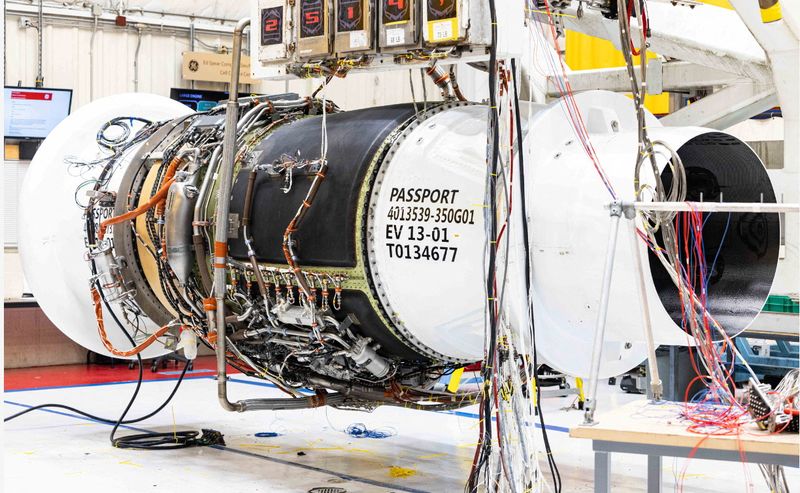By Rajesh Kumar Singh
EVENDALE, Ohio (Reuters) - GE Aerospace is developing a hybrid electric engine with the hopes it will power next-generation narrow-body jets by the middle of the next decade.
While the technology is still being tested, should GE be successful, it could produce hybrid-engine jets - like a Toyota (NYSE:TM) Prius of the skies - that would go a long way toward cutting the aviation industry's carbon emissions worldwide, half of which come from single-aisle jets.
Hybrid cars are common on the roads, but decarbonizing the aerospace industry is considered much more difficult. In hybrid engines, an aircraft uses several energy sources while in flight. Airbus estimates the mix of energy sources - jet fuel or sustainable aviation fuels combined with electricity – reduces fuel consumption by up to 5% compared to a standard flight.
GE Aerospace is working with NASA on a project that will embed electric motors or generators in a high-bypass turbofan to supplement power during different phases of operation, company executives said.
On Wednesday, the company said it has completed the initial tests of the hybrid components and a baseline test of the engine. It next plans to test the components and the engine together.
The global aviation industry has set a goal of net-zero emissions by 2050. But technologies such as electric and hydrogen-powered aircraft are still unproven, making decarbonization a formidable challenge for the industry, which generates about 2% of global emissions.
Developing more fuel-efficient engines to cut emissions is a new challenge for the aviation industry. Environmental critics have said the industry's net-zero targets are unrealistic, and argued that the only way to reach them is to substantially reduce flying globally.
The hybrid engine program is one of several projects GE Aerospace has been pursuing to develop more fuel efficient technology.

In partnership with France's Safran (EPA:SAF), GE is testing the building blocks for an open-bladed jet engine for the next generation of medium-haul jets that will be able to reduce fuel use and emissions by 20% from the middle of the next decade.
GE's rival RTX is also working on a hybrid-electric technology demonstrator that combines a thermal engine with electric motor, with a goal to improve fuel efficiency by 30%.